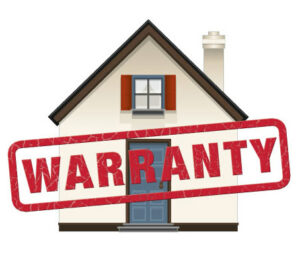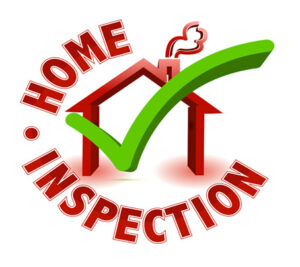Negotiating The Offer To Purchase Contract

This is it! You’ve found the house and you’re ready to submit an offer! The majority of the items below are negotiable but will need to be identified in order to submit an offer. Please keep in mind, generally speaking, the lower the offer price, the less likely the seller will be to negotiate other areas of the contract or repairs. The contract is not enforceable until both parties (buyers and sellers) of the transaction have signed and dated the Offer To Purchase Contract. Once the Offer is signed by both parties of the transaction, the contract is legally binding.
- Purchase Price – This amount is negotiable. The question I hear most often, “Lori, we have to have this house! How much should we offer?” Prior to submitting an offer, I provide the comparable properties (comps) sold in the area, as well as other market information so my clients can make an educated decision. It is then up to my clients to decide how much the house is worth to them. My question back to the buyer is normally, “If you lost the house over $xxxx, would you be OK or would you be devastated?”
- Earnest Money Deposit – This amount is negotiable. No set percentage or amount. **Discussed further in Earnest Money section**
- Due Diligence Fee – This amount is negotiable. No set percentage or amount. **Discussed further in Due Diligence Fee section**
- Due Diligence Period – This timeframe is negotiable. Standard is 3 weeks for inspections and financing approval. **Discussed further in Due Diligence Period section**
- Settlement/Closing Date – From date of contract, standard time is 30-45 days if financing. Confirm with your Lender prior to selecting a closing date. If paying cash, standard time is 14-21 days.
- Financing Terms –Though this can change during the financing process, nothing in this section is negotiable. If it is necessary for you to obtain a loan in order to purchase a property, we will need a Pre-Qualification Letter from your Lender to submit with your offer. Your Lender can issue this letter in about 20 minutes by pulling your credit and taking loan application information (how much money you make vs. your debts). It is your responsibility to confirm final approval with your lender before the end of your Due Diligence Period. If you are paying cash, we will need a Proof of Funds letter from your bank to submit with the offer.
- Personal Property – You can also ask for furniture, pictures, drapes, cars, ANYTHING! It must be listed in the contract to be included. Most kitchen appliances come with the house. Washer, dryer, and refrigerator are negotiable items that are not guaranteed unless listed in the contract.
- Home Warranty – It is common for sellers to pay for a one year home warranty at closing. It is not a high ticket item and will give buyers peace of mind with their investment. This item is negotiable. **Discussed further in Home Warranty section**
- Seller Paid Closing Costs – Sellers are required to pay for document preparation of the deed, the property transfer tax, and Real Estate Agent commissions, unless otherwise discussed. All other closing costs are the buyer’s responsibility. Requesting the seller to pay for all or a portion of closing costs is negotiable. **Discussed further in Purchasing Expenses section**
How Much Earnest Money Should I Offer?

When submitting an offer on a home, the one question I receive every time (literally) is, “How much earnest money should I offer?” Unfortunately, there is no formula or set amount. Earnest Money Deposits (EMD) range from $250 – 10,000…. Yes, I know that is quite a range! I suggest amount based on the demand and price of the home, the leave it up to my client to give the final number. When determining an amount, I’d like for you to keep these things in mind:
- The definition of “earnest”– a thing intended or regarded as a sign or promise of what is to come; or resulting from or showing sincere and intense conviction. So basically, view the Earnest Money Deposit as a way of showing the seller how serious you are about purchasing their home!
- You are not throwing the money away! This money will be deducted from the balance of the purchase price (i.e. $200,000 Purchase Price, $1,000 in Earnest Money, $199,000 Balance).
- If your loan does not close (i.e. does not appraise, does not pass inspections, financing falls through, etc.), your Earnest Money Deposit will be refunded to you AS LONG AS we terminate the contract before the end of the Due Diligence period. **Due Diligence will be discussed in another section**
- In North Carolina, once your offer has been accepted and contracts have been signed by all parties of the transaction (buyers and sellers), the full amount of Earnest Money will be due within 5 days of the effective date of the contract.
- Methods of payment for Earnest Money in North Carolina include: personal check, official bank check, wire transfer, electronic funds transfer, and sometimes but not always, cash.
- PLEASE know the funds will be deposited in to a trust account, so no writing a bad check hoping they won’t cash it!
What is a Due Diligence Fee?

The Due Diligence Fee is a NON-REFUNDABLE fee paid directly to the seller to compensate them for them for taking their home off of the market. In North Carolina, due diligence is not a mandatory fee. Similar to Earnest Money, there is no formula or set amount. Due Diligence fees range from $0 – 10,000 based on the demand of the home, and the buyer’s certainty of purchasing the home. I’ve found the best time to offer a Due Diligence fee is when there are multiple offers on one property. If my clients are determined to lock down the contract, I will suggest offering the seller a due diligence fee to make their offer just a little bit sweeter! When determining if you’d like to offer a Due Diligence Fee with your offer, I’d like for you to keep these things in mind:
- If you are submitting the only offer on a property, a Due Diligence fee may not be necessary. However, if there are multiple offers on the same property, this fee could be what pushes the sellers to choose your offer over another!
- You are not throwing the money away! This money will be deducted from the balance of the purchase price (i.e. $200,000 Purchase Price, $1,000 in Earnest Money, $500 Due Diligence Fee, $198,500 Balance).
- In North Carolina, once your offer has been accepted and contracts have been signed by all parties of the transaction (buyers and sellers), the full amount of the Due Diligence Fee will be due within 3 days of the effective date of the contract.
- Methods of payment for Due Diligence in North Carolina include: personal check, official bank check, and sometimes but not always, cash.
- PLEASE know the funds will be given directly to the seller so again, no writing a bad check hoping they won’t cash it!
What is the Due Diligence Period?

I like to think of the Due Diligence Period as our time to play Detective! It is a negotiated amount of time for the buyer to investigate a property before making a final commitment to proceed with the purchase. The average amount of time is 2-3 weeks on resales or pre-owned homes. During the Due Diligence Period, you will want to accomplish the following tasks:
- Buyer should conduct ALL inspections that are important to them. **Different types of inspections are discussed in another section**
- Other important issues to research are zoning rules, insurance availability and prices, and everything HOA (Homeowners Association)
- If financing, your Lender will order your appraisal during this time. Some appraisals can take 10+ days so make sure to allow plenty of time!
- This is also the time you should receive confirmation that your lender will approve your financing.
- FINAL repair and/or price negotiations are agreed upon based on appraisal and inspections.
- At any time BEFORE 5:00PM on the final day of the Due Diligence Period, the buyer may terminate the contract for any reason or no reason at all.
Home Warranty

As stated in the INSPECTIONS section, inspections do not guarantee the life of the mechanical systems (HVAC, electrical, plumbing, etc) and/or appliances. Your home could pass every inspection with flying colors, then POOF, six months later something dies. “Seven out of every ten homes experience some type of system or appliance failure during the course of one year.” The home warranty is a service contract that will help safeguard against the high cost of repairs or replacements to the major systems and appliances that fail due to normal wear and tear.
If the seller is not offering a home warranty, I ALWAYS ask them to purchase one. Who pays for the home warranty? It is negotiable! It is common for sellers to pay for a one year home warranty at closing. This should be clearly stated in the Offer To Purchase Contract. It is not a high ticket item and will give buyers peace of mind with their investment.
The Buyer’s home warranty coverage begins and is paid for at the close of the sale, and continues for one year from that date. Home warranties are annually renewable, at the warranty company’s discretion. Standard home warranties range from $419 – 565 locally. For an extra charge, there are additional options for items not covered, such as: septic, roof leaks, swimming pools, and well pumps. Home warranties do not cover normal maintenance and/or cleaning, improper installations, or systems/appliances that did not work prior to your purchase.
EXAMPLE: you purchase a home knowing the air conditioning unit does not work, but have hopes to pull a fast one over on the warranty company. After closing, you call the warranty company expecting them to send a contractor to repair at their expense. Good try, but no, they won’t fall for it….. EVER!
Closing Attorney

In North Carolina, Real Estate Attorneys are required to perform the real estate closing when purchasing a home. Most commonly, you will not see your attorney face-to-face until closing. The attorney is chosen, appointed, and paid for by the buyer, therefore they are working for you, not the seller! Typically, the only legal work the seller needs is the preparation of the deed. That is a relatively simple and inexpensive task, especially for an attorney already familiar with the property (since s/he did the title search for the buyer).
Please understand; though you may not see your them, there is quite a bit of work going on behind the scenes. The real estate attorney is working for you, the buyer, to ensure that all the terms of the contract are met. They are also working with your Exclusive Buyers Agent and Lender to guarantee the accuracy of your Closing Disclosure (formerly the HUD which is the form detailing your transaction and the distribution of funds). Third, in order to guarantee a free and clear title, they are searching public records for any liens, easements, or other title restrictions that may affect the property and how you are legally able to utilize it. **If the title search identifies problems, I encourage clients to require the seller to correct those problems as a condition to closing**
EXAMPLE: you find THE house! It even has an infinity pool in the backyard that you’ve literally had dreams about, complete with hot tub, facing the Atlantic Ocean! You submit an offer, it is accepted, then through the title search, the attorney uncovers OOOOOPS, apparently the sellers “forgot” to pay the pool man for that perfect pool, and he’s put a lien on the property. In that case, the seller would need to make arrangements to pay the pool man in full prior to closing or from the proceeds at closing. The other option would be for the buyer to assume the debt and pay in full at closing. Not matter how much you love the home, that is definitely something you’d like to know BEFORE the property is legally yours!
Inspections, Inspections, and MORE Inspections!
 Unless you are well versed in building quality, structure, crawl spaces, electrical, plumbing, air conditioning, heat pumps, well/water, septic, swimming pools, and mold, a home inspection is a really good idea! When viewing a home, many times potential buyers fall in love with fresh and new: paint, flooring, appliances, etc. Though those things look great, there are times they could be hiding something. For example, a nice coat of white paint on a ceiling can easily hide water damage! Even if a home in brand new, it can’t hurt to get a second opinion. During the Due Diligence Period, buyers will have the opportunity to perform all inspections. Buyers are expected to pay for inspections at the time of service. Keep these things in mind when determining which inspections are best for you:
Unless you are well versed in building quality, structure, crawl spaces, electrical, plumbing, air conditioning, heat pumps, well/water, septic, swimming pools, and mold, a home inspection is a really good idea! When viewing a home, many times potential buyers fall in love with fresh and new: paint, flooring, appliances, etc. Though those things look great, there are times they could be hiding something. For example, a nice coat of white paint on a ceiling can easily hide water damage! Even if a home in brand new, it can’t hurt to get a second opinion. During the Due Diligence Period, buyers will have the opportunity to perform all inspections. Buyers are expected to pay for inspections at the time of service. Keep these things in mind when determining which inspections are best for you:
- I ALWAYS encourage my clients to have a general home inspection performed by a LICENSED Home Inspector. The Inspector will look in every crack and crevice, and check the workings of every appliance being sold with the home. Locally, prices currently range from $400 – 650. Price is determined by age and size of prospective home. It is against the law for Home Inspectors to knock holes in the walls, pull up flooring, or dismantle appliances.
- Depending on the age of the heating and cooling system, I might encourage clients to consider a separate HVAC inspection. The Home Inspector makes sure it is working properly by running the system. A licensed HVAC Contractor will look inside the unit and diagnose specific problems or identify parts that may need to be replaced in the near future. Locally, HVAC inspections range from $100 – 250.
- If you are moving in to a home that has a septic tank, it might be a good idea to have a professional take a look inside. You never know what the previous owners were flushing and no one wants to have their system back up once you move in! Ewwww….. Local septic inspections range from $350 – 500.
- Many Lenders require a Wood Destroying Insect (termite) Inspection. Prices range from $50 – 175.
- For the most part, radon is not an issue along the Southeastern NC coast. However, please do not take our word for it. Check out the Environmental Protection Agency’s website at http://www.epa.gov/radon/find-information-about-local-radon-zones-and-radon-programs#radonmap. If you are at all uneasy about the possibility of the existence of radon, by all means, have it tested.
- You may also choose to purchase well and water inspection. They will inspect the condition of well, pump, filtration system, and even water quality.
- Swimming pools can get quite expensive if something goes wrong! It can’t hurt to have an expert make sure there are no leaks, and everything is working properly before you purchase the home! Pool inspections range from $150 – 500. Price is determined by size, structure type, systems, and extras.

